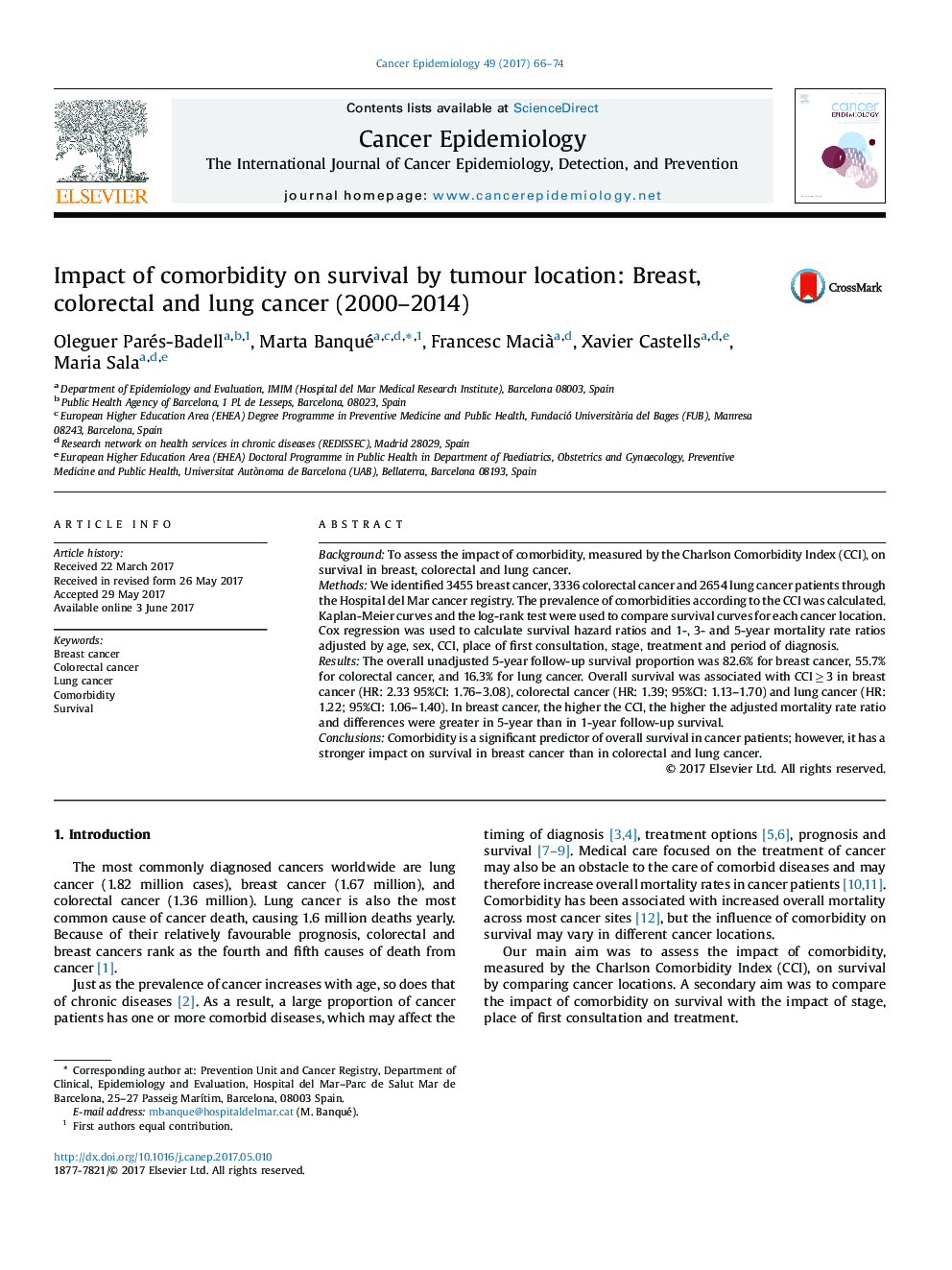| Article ID | Journal | Published Year | Pages | File Type |
|---|---|---|---|---|
| 5524792 | Cancer Epidemiology | 2017 | 9 Pages |
â¢Comorbidity is a significant predictor of overall survival in cancer patients.â¢The impact of comorbidity on cancer survival varies depending on cancer location.â¢In breast cancer, having a higher CCI is strongly associated to lower survival.â¢In lung cancer, an association between CCI and survival could not be found.
BackgroundTo assess the impact of comorbidity, measured by the Charlson Comorbidity Index (CCI), on survival in breast, colorectal and lung cancer.MethodsWe identified 3455 breast cancer, 3336 colorectal cancer and 2654 lung cancer patients through the Hospital del Mar cancer registry. The prevalence of comorbidities according to the CCI was calculated. Kaplan-Meier curves and the log-rank test were used to compare survival curves for each cancer location. Cox regression was used to calculate survival hazard ratios and 1-, 3- and 5-year mortality rate ratios adjusted by age, sex, CCI, place of first consultation, stage, treatment and period of diagnosis.ResultsThe overall unadjusted 5-year follow-up survival proportion was 82.6% for breast cancer, 55.7% for colorectal cancer, and 16.3% for lung cancer. Overall survival was associated with CCI â¥Â 3 in breast cancer (HR: 2.33 95%CI: 1.76-3.08), colorectal cancer (HR: 1.39; 95%CI: 1.13-1.70) and lung cancer (HR: 1.22; 95%CI: 1.06-1.40). In breast cancer, the higher the CCI, the higher the adjusted mortality rate ratio and differences were greater in 5-year than in 1-year follow-up survival.ConclusionsComorbidity is a significant predictor of overall survival in cancer patients; however, it has a stronger impact on survival in breast cancer than in colorectal and lung cancer.
